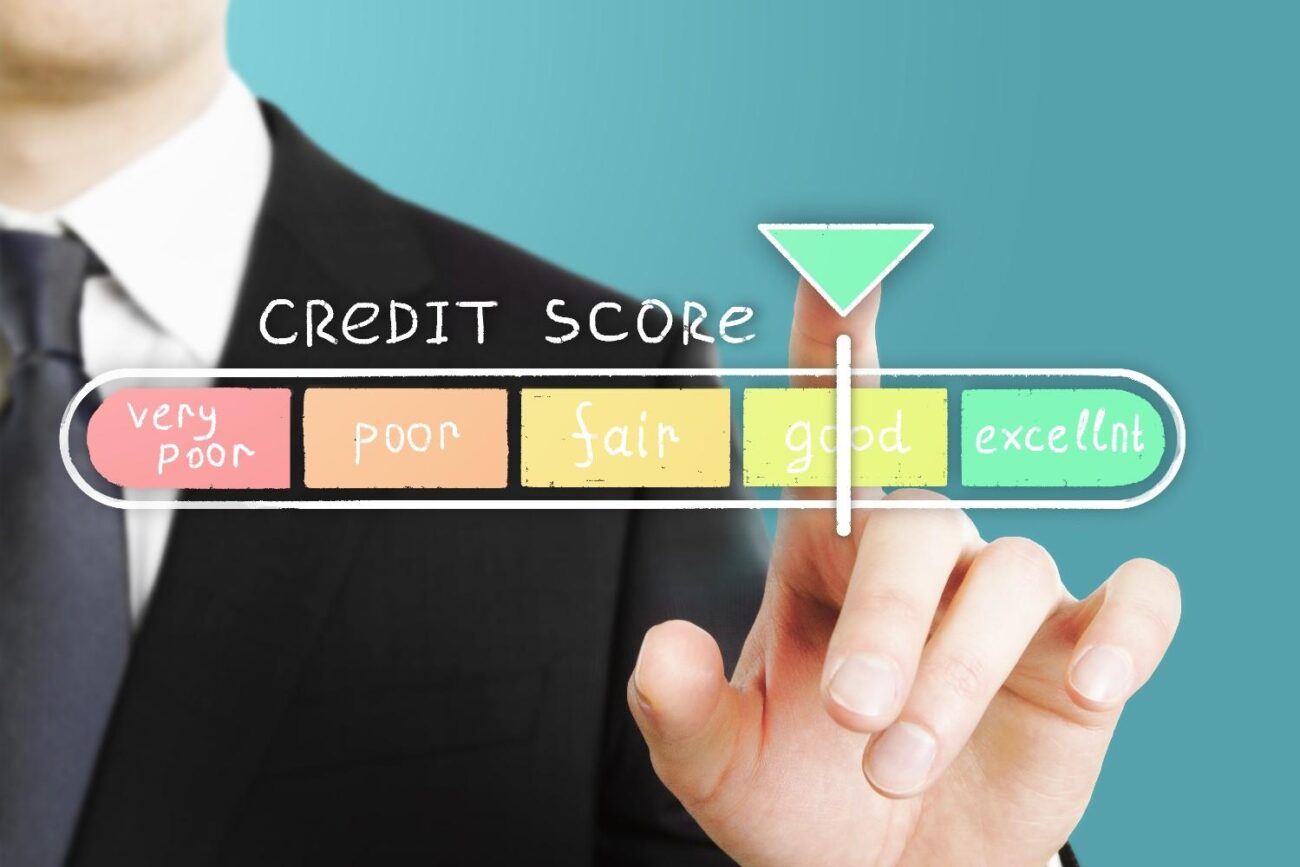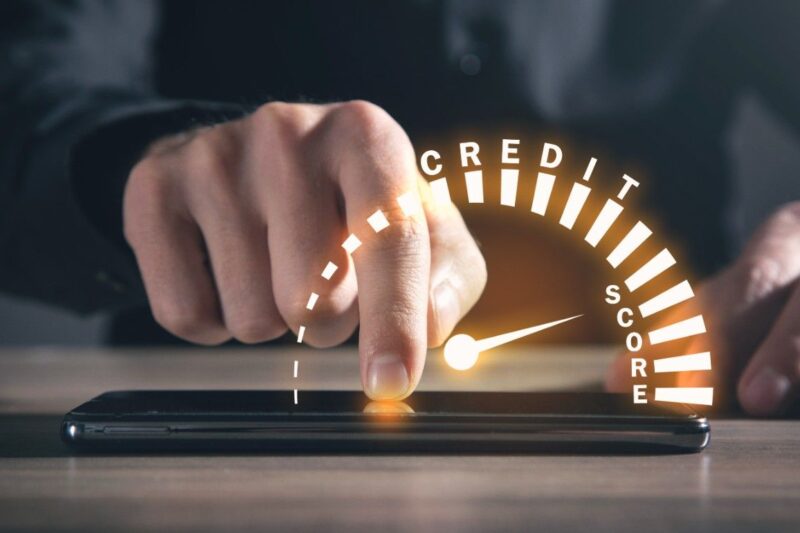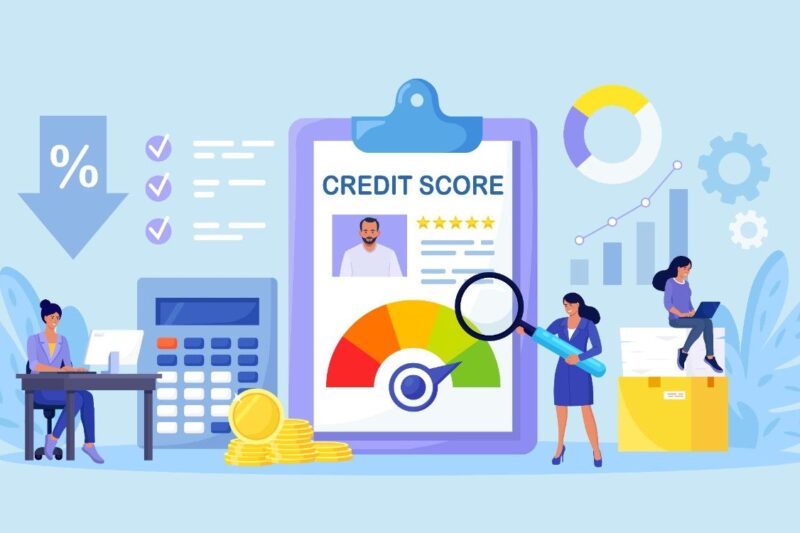One of the most stressful situations in life is losing a job. There is a growing concern about your financial health in addition to the immediate worry about your earnings. Although joblessness does not directly impact your credit score, the consequences of having less money, such as failing to make payments, using credit cards more regularly, or building up debt, can. Maintaining your financial future during this time involves understanding how to prevent harm to your credit score.
This is a helpful guide on how to keep your credit score safe while you’re looking for employment.
Why Unemployment Can Affect Your Credit Score
The following factors are used for calculating your credit score,
- Payment History – Do you make your loan and bill payments on a timely basis?
- Credit Utilisation – To what degree are you making use of your available credit?
- Credit History Length – What is the duration of your account maintenance?
- Credit Inquiries – How frequently do lenders look into your credit?
- Credit Mix – Having a good balance of credit cards and loans can improve your credit score.
Although it fails to show up on your credit report, unemployment may have a hidden negative impact. Your credit score might drop if you have trouble paying your bills or use credit regularly. Your credit report will show higher utilisation and late payments.
Practical Strategies to Avoid Credit Score Damage
1. Make on-time payments a top concern
The main factor that influences your credit score is your payment history. Always make an effort to pay the minimum amount due on your loans and credit cards, even if you are unemployed. You can prevent unplanned payments that are late by setting up automatic payments or reminders.
If you have several bills, pay the ones that have the biggest impact on your credit score first, such as secured loans and credit cards.
2. Communicate with the creditors
Get in touch with your lenders immediately if you think you could fail to make a payment. These could consist of,
- Postponed payments
- Lower interest rates
- Restructuring the repayment plan temporarily
Maintaining open lines of communication can help you manage your money while you’re unemployed and avoid missed payments being reported to credit bureaus.
3. Keep Credit Utilisation Low
Lenders view high credit card balances as an indication of risk. Aim to utilise not more than 30% of your entire credit limit. Try your best to keep your usage under ₹18,000, for example, if your limit is ₹60,000.
In addition to improving your credit score, this also facilitates repayment once you start earning money again.
4. Track Your Credit Health Regularly
It’s essential to be aware of the current state of your credit profile while you’re unemployed. Examining your report helps you,
- Understand your mistakes
- Recognise fraud
- Keep track of any changes to your score.
Every year, you get one free report from each bureau. You can keep an eye on your score and maintain control by using a trustworthy platform like Olyv if you prefer to track regularly. You can plan wisely and prevent damage to your credit score before problems start with this one habit.
5. Avoid Multiple New Loans or Credit Inquiries
When money is tight, it’s natural to apply for more credit. However, each question could end in a small decrease in your score. Lenders view you as eager for credit if you submit several enquiries in a short amount of time.
Instead, up until your finances settle down, concentrate on carefully handling your current credit.
6. Create or Utilise an Emergency Plan
This is the time to use your emergency fund, if you have one. Otherwise, think about short-term options that won’t run up your debt, such as:
- Reducing spending on leisure activities
- Taking on part-time or freelance work
- Selling items that aren’t needed
As a final option, taking out no-interest family loans
Common Mistakes to Avoid
| Mistake | Outcome |
| Ignoring bills | Late payment penalties + score drop |
| Maxing out credit cards | Higher utilisation means a lower score |
| Applying for multiple loans | Repeated inquiries hurt the score |
| Not checking your report | Errors go unnoticed |
Manage Your Mindset Too
Unemployment has an impact on an individual’s emotional being just as much as it does their finances. Keeping peaceful spirits around you will make it easier to approach money matters with a clear mind.
Don’t forget,
- This period will come to an end
- You will be able to recover your credit rating
- Good choices now will stop you from experiencing bigger problems in the future.
Through self-control and knowledge, one can avoid credit score damage and restore it faster after the income has come back in.
Conclusion
Losing a job is certainly a tough situation to deal with, but at the same time, it can’t be considered as an end to your financial credibility. Through making payments on time, having open talks with lenders, using a credit card less, and checking your credit score regularly, you can avoid credit score damage and secure your future chances. Your credit score is not dependent on your employment; it reflects your financial choices, and you still have control over them.



